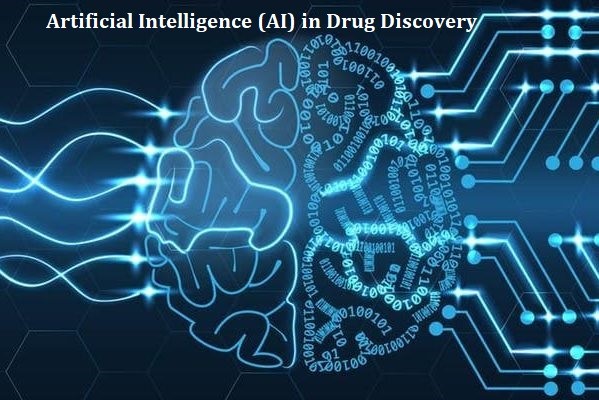Let’s say you have a headache, for relief you take paracetamol, without ever needing to know how Harmon Northrop Morse came to discover it or how long it took to make it. Drug discovery is a difficult process, no doubt, but it is also time-taking and costly even when scientists have the process mapped out. There are several contingencies in the procedure, and even more so during clinical trials. H.C. Stephen Chan’s paper titled ‘Advancing Drug Discovery via Artificial Intelligence,’ published in the journal Trends in Pharmacological Sciences, says that the development of a new drug takes, on average, 12 years, and costs around USD 2.6 Billion. Up until a decade ago, human intelligence was burdened with drug discovery, and then we figured out that artificial intelligence might be able to help us.
With time, we have been successful in surviving for longer lifespans with the help of a continually-developing drug repository with a fix for most known diseases, and scientists are always looking for ways to treat the rare or life-threatening diseases like cancer that do not have a cure yet. The paper goes on to discuss how machine learning, which is a branch of AI, can predict the chemical and physical properties of small molecules with a significantly lower time-cost and the accuracy offered by quantum mechanics. AI-based algorithms are also being developed to explore the pathways of synthesis of novel drug candidates with higher efficacy. AI can also detect correlations between molecular representations, along with biological and toxicological activities. According to a research study by Reports and Data, the Global Artificial Intelligence in Drug Discovery Market was valued at USD 123.9 million in 2018 and is expected to reach USD 2.20 billion by the year 2026, escalating at a CAGR of 40.6%.
In the past few years, Artificial Intelligence has grown immensely, establishing a prominent position in the field of drug discovery. For instance, a machine learning algorithm developed by researchers at MIT recently identified a new compound capable of destroying numerous antibiotic-resistant superbugs, which also includes certain bacteria that have become resistant to existing antibiotics. The researchers fed over 100,000,000 chemical compounds over a particular number of days to the AI, a computer model. The system sorted through these, ultimately detecting compounds that can destroy multiple superbugs. The research is proof that in such circumstances, machine learning can do the work at a significantly faster speed than that performed by humans, which is an indispensable quality in the healthcare sector. There are several other instances wherein artificial intelligence and machine learning have catalyzed the discovery of a drug. A team of MIT researchers has also found a compound that could lead to the development of a potent antibiotic. The compound is called Halicin, named after 2001: A Space Odyssey’s homicidal computer HAL 9000, and has exhibited a robust ability to destroy bacteria.
The big names in the industry include BenevolentAI, BERG LLC, Cloud Pharmaceuticals, Cyclica, Deep Genomics, Envisagenics, Google, IBM Corporation, Insilico Medicine, Microsoft, and NVIDIA Corporation. NVIDIA is a major gaming company, and in 2019, it decided to deploy its resources towards helping healthcare companies by giving them access to its GPUs and a distributed approach called ‘federated learning’ to train AI models on data, with the ultimate goal of improved AI-assisted drug discovery and the subsequent drug development. Tech giant Microsoft signed a deal with Novartis in the same year to establish an ‘AI innovation lab’ and co-working centers at the pharmaceutical company’s offices in Dublin and Switzerland as well as the Microsft Research Lab situated in Cambridge, England. The deal is aimed at helping Novartis’ employees have access to enough computing firepower they need to discover novel, next-generation medicines.
So, why is AI’s role in drug discovery more crucial now than ever?
To go back to my initial statement, we have found ways to beat diseases to live longer, healthier lives; however, during this time, viruses and bacteria have also upped their games, as is visible from the Coronavirus outbreak. Coronavirus (COVID-19), which became a designated pandemic this month, has seen nations trying to find a cure. Most of them have been trying their luck with drugs that are prescribed for flu, as both have synonymous symptoms at the initial stages. Some antiviral medications like Favipiravir are believed to be effective against the infection. The virus has taken a staggering toll on human life everywhere. Since there is still very little information about the virus, the global objective is to find both a cure and a vaccine and to ultimately scale their production to make them available everywhere. Scientists are trying to examine the virus extensively to decipher every aspect of its existence. A vaccine would be an excellent fix to this situation, primarily because of the basic reproduction number of the virus, which is increasing at an alarming rate.
Coronavirus has placed a significant challenge in front of humankind, although a machine may have possibly found a way out. A supercomputer called Summit. IBM’s supercomputer Summit was able to identify 77 drug compounds that could be effective in stopping the virus from binding to host cells. The research findings, published by Oak Ridge National Laboratory researchers in the journal ChemRxiv, indicate a more achievable possibility of a vaccine. The supercomputer modeled how different drug compounds might stop the virus from spreading to other cells. This is not Summit’s first feat of this kind; it has successfully identified patterns in cellular systems that occur before Alzheimer’s and has also been able to predict extreme weather by examining climate simulations.
The future of AI in drug discovery is promising, just as is seen from its capabilities in helping to accelerate the process of drug development. Still, humans have not reached a stage where we rely on machine learning entirely, even though the time-to-cost benefits are too colossal to ignore. What we are witnessing right now is the nascency of an industry that could potentially become an indispensable healthcare tool for drug development.











